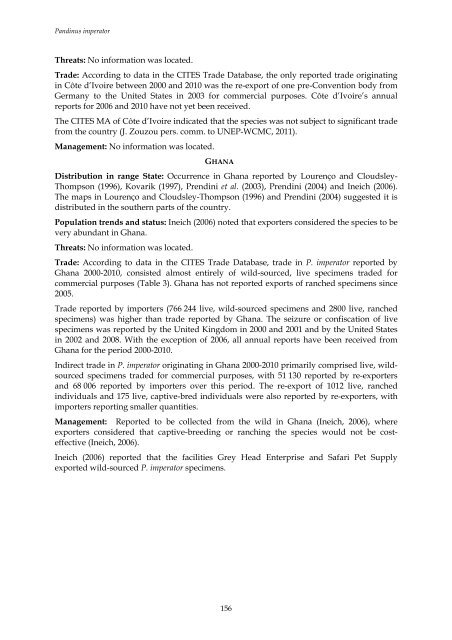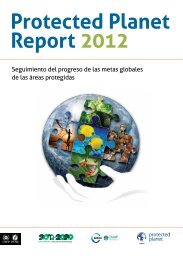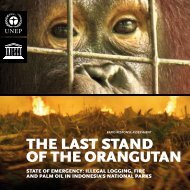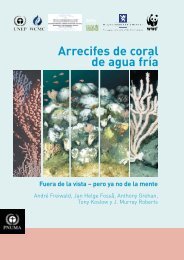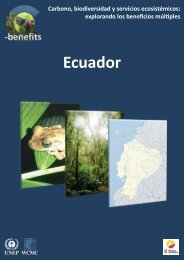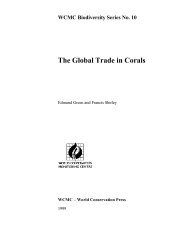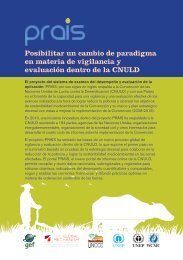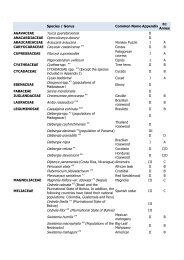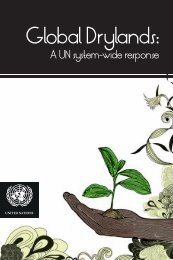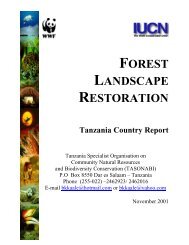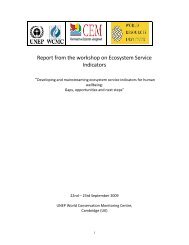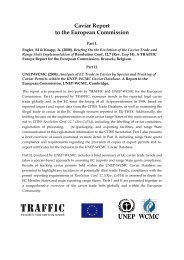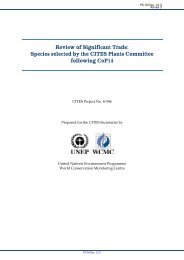2012. Review of Significant Trade - Cites
2012. Review of Significant Trade - Cites
2012. Review of Significant Trade - Cites
Create successful ePaper yourself
Turn your PDF publications into a flip-book with our unique Google optimized e-Paper software.
Pandinus imperator<br />
Threats: No information was located.<br />
<strong>Trade</strong>: According to data in the CITES <strong>Trade</strong> Database, the only reported trade originating<br />
in Côte d’Ivoire between 2000 and 2010 was the re-export <strong>of</strong> one pre-Convention body from<br />
Germany to the United States in 2003 for commercial purposes. Côte d’Ivoire’s annual<br />
reports for 2006 and 2010 have not yet been received.<br />
The CITES MA <strong>of</strong> Côte d’Ivoire indicated that the species was not subject to significant trade<br />
from the country (J. Zouzou pers. comm. to UNEP-WCMC, 2011).<br />
Management: No information was located.<br />
GHANA<br />
Distribution in range State: Occurrence in Ghana reported by Lourenço and Cloudsley-<br />
Thompson (1996), Kovarik (1997), Prendini et al. (2003), Prendini (2004) and Ineich (2006).<br />
The maps in Lourenço and Cloudsley-Thompson (1996) and Prendini (2004) suggested it is<br />
distributed in the southern parts <strong>of</strong> the country.<br />
Population trends and status: Ineich (2006) noted that exporters considered the species to be<br />
very abundant in Ghana.<br />
Threats: No information was located.<br />
<strong>Trade</strong>: According to data in the CITES <strong>Trade</strong> Database, trade in P. imperator reported by<br />
Ghana 2000-2010, consisted almost entirely <strong>of</strong> wild-sourced, live specimens traded for<br />
commercial purposes (Table 3). Ghana has not reported exports <strong>of</strong> ranched specimens since<br />
2005.<br />
<strong>Trade</strong> reported by importers (766 244 live, wild-sourced specimens and 2800 live, ranched<br />
specimens) was higher than trade reported by Ghana. The seizure or confiscation <strong>of</strong> live<br />
specimens was reported by the United Kingdom in 2000 and 2001 and by the United States<br />
in 2002 and 2008. With the exception <strong>of</strong> 2006, all annual reports have been received from<br />
Ghana for the period 2000-2010.<br />
Indirect trade in P. imperator originating in Ghana 2000-2010 primarily comprised live, wildsourced<br />
specimens traded for commercial purposes, with 51 130 reported by re-exporters<br />
and 68 006 reported by importers over this period. The re-export <strong>of</strong> 1012 live, ranched<br />
individuals and 175 live, captive-bred individuals were also reported by re-exporters, with<br />
importers reporting smaller quantities.<br />
Management: Reported to be collected from the wild in Ghana (Ineich, 2006), where<br />
exporters considered that captive-breeding or ranching the species would not be costeffective<br />
(Ineich, 2006).<br />
Ineich (2006) reported that the facilities Grey Head Enterprise and Safari Pet Supply<br />
exported wild-sourced P. imperator specimens.<br />
156


